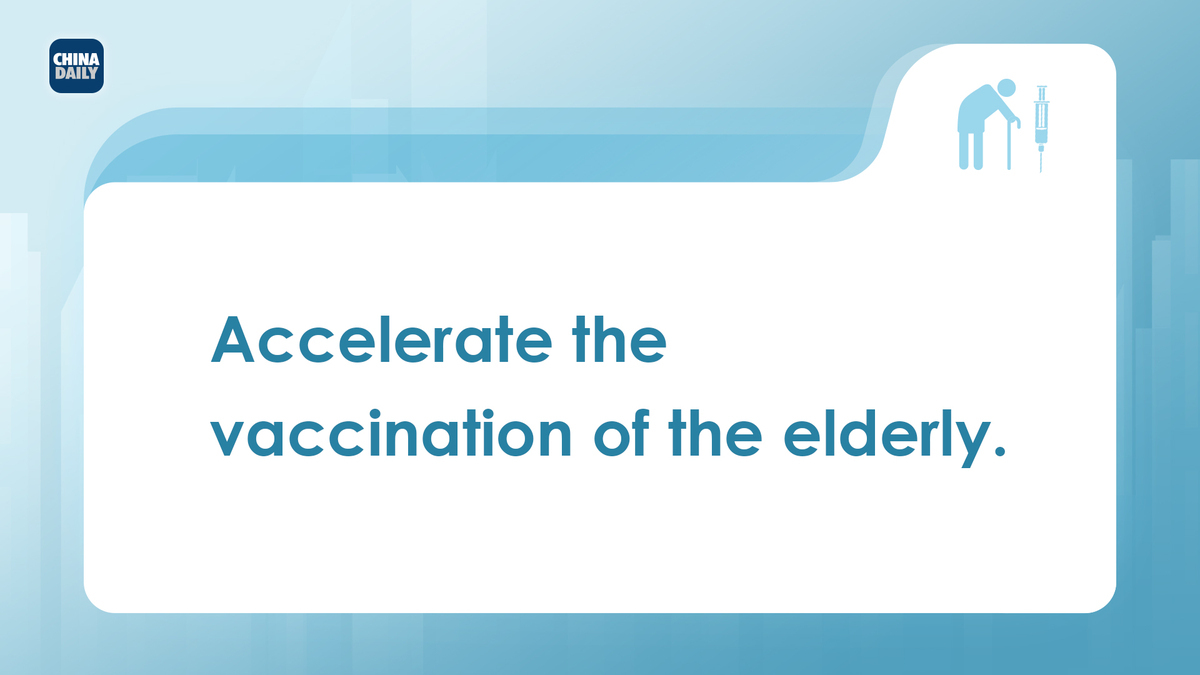Epidemic: Modified approach ensure maximum benefit


Future measures
Speaking at an academic conference on Thursday, Zhong Nanshan, one of China's leading respiratory experts, said the country's epidemic strategy has been very successful, but the fight is not yet over.
"The Omicron variant is highly transmissible, but it is not scary: 99 percent of people can recover fully within seven to 10 days," he said. "The focus of future epidemic control should be treating the severely ill."
Tong Zhaohui, vice-president of the Beijing Chaoyang Hospital, said that there were only four severe cases out of more than 160,000 during the latest outbreak in Guangzhou, Guangdong province. "Omicron spreads much faster than the original strain, but studies and clinical data have proven that it has weaker pathogenesis," he added.
Wang Chen, senior physician and vice-president of the Chinese Academy of Engineering, said the next two to four months will be critical for China as there will likely be a rise in the number of COVID-19 cases.
The appropriate and orderly allocation and use of existing medical resources will be key to controlling the wave of infections, promoting socioeconomic growth and protecting patients' health, Wang added.
During a group interview on Friday, Zhong said models predict that the infection peak will likely arrive late next month and in early February. That will overlap with the 2023 Lunar New Year holidays, which will run from Jan 21 to 27. The event typically prompts the planet's largest annual migration, during which hundreds of millions of people travel to visit their families in their hometowns. Zhong said it is unlikely that China would restrict cross-regional travel during the 2023 holidays, which happened in previous years.
"I advise those traveling home to get booster shots, so that even if they get infected, the symptoms won't be too serious," he said, adding that it takes around one to two weeks for the immunity from the booster shot to take full effect.
Li Lanjuan, a noted epidemiologist, said the Omicron variant primarily targets the upper respiratory tract and causes a less-severe illness than previous strains.
That means most infected people are asymptomatic or have mild symptoms, she said, adding that maintaining personal hygiene, washing hands, taking routine exercise and wearing a mask while outside are effective measures that can shield people from infections.
Zhong Ming, a senior physician at the Zhongshan Hospital in Shanghai, said one of the most important things the public should understand is that not all infected people should go to the hospital.
"We need to safeguard the orderly function of the medical system and prevent it from being overwhelmed. Only those who are truly in need should go to the hospital," he said.
Seniors, late-stage cancer patients, obese people or those with compromised immunity, and those with diabetes, chronic respiratory illness and severe hypertension are more susceptible to becoming severely ill after getting infected with Omicron, he said.
If a patient's temperature stays above 38.5 C for more than three days and doesn't respond well to medication, they should go to the hospital immediately, he said, adding that those who have difficulty breathing or more severe underlying health conditions after becoming infected should also seek medical help.
Outside of those criteria, most people will get better on their own, he said. "After this wave of infections, most people's lives should return to normal. But the virus is still mutating and flare-ups are still possible, so for us medical workers, the battle will likely last longer."























